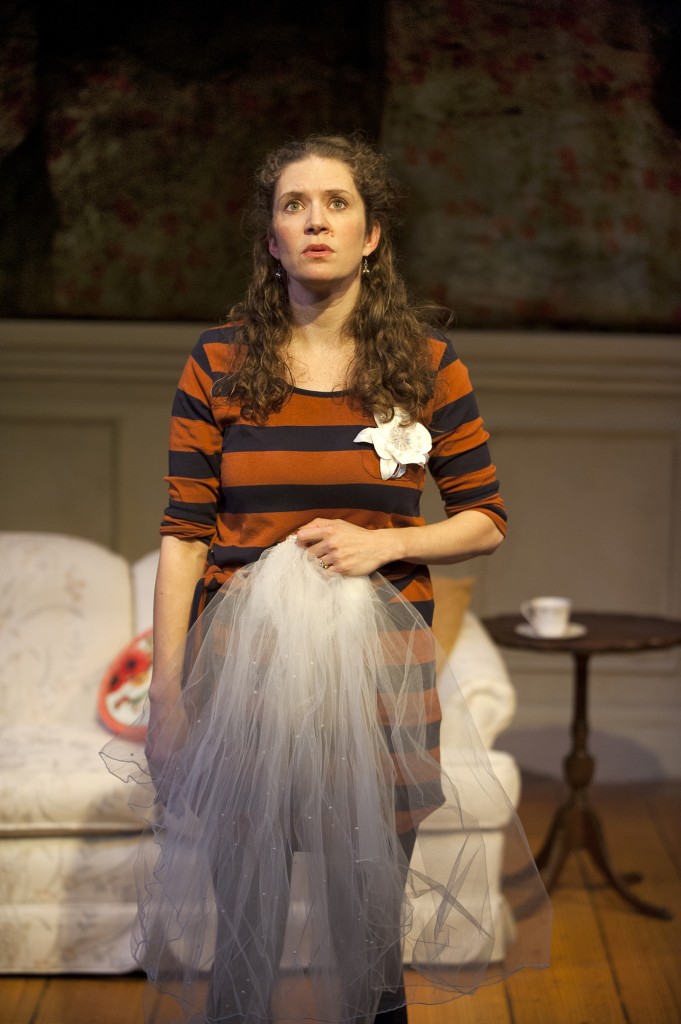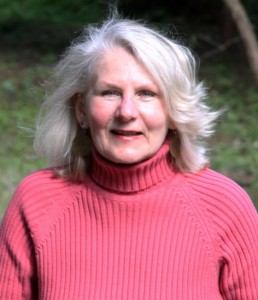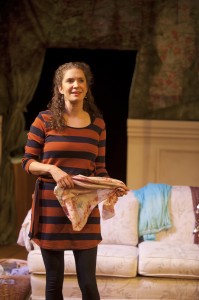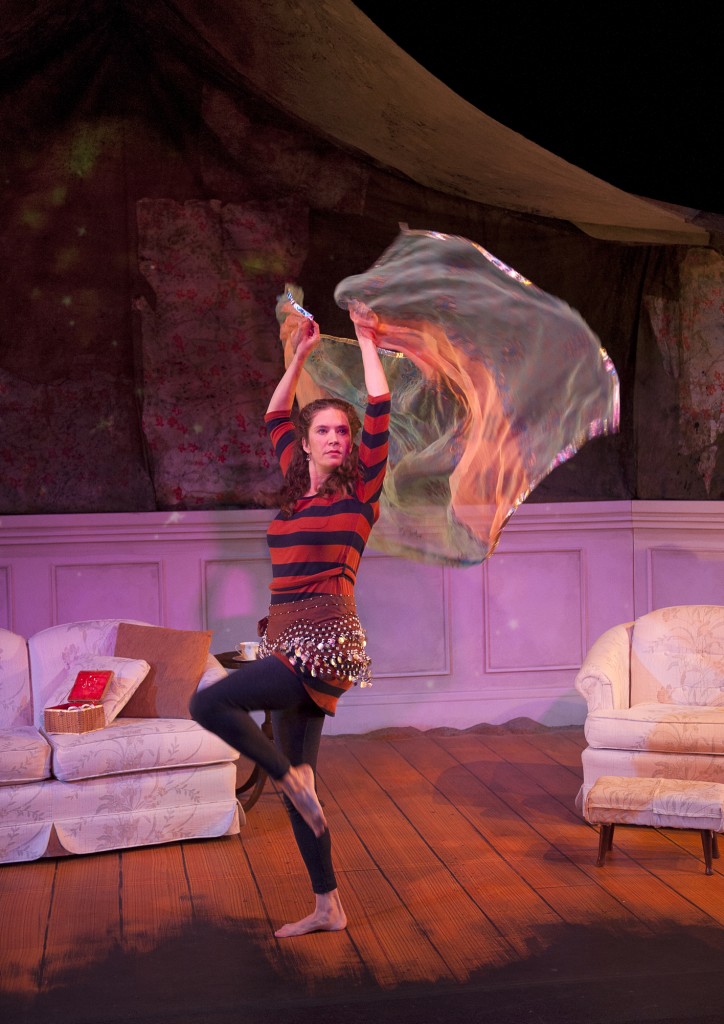At The Firehall Arts Centre until November 16
604-689-0926/firehallartscentre.ca
Posted November 8, 2013

Credit: Emily Cooper
“Nothing bad can ever happen to us”. That’s what beautiful young Kate, in love with Gerry Rourke, honestly believed. Kate and Gerry got married, had two kids – Dwayne and Fiona – and life was good in spite of moving around a lot as Armed Services families do. But life was good. Not much money but lots of love.
And then Gerry Rourke was called to serve in the Gulf War. He phoned home once a week but as the weeks passed, he became more and more distant; he didn’t even ask about the kids anymore. And when he finally returned, he was a stranger. Nights sweats, explosive behavior, withdrawal, loss of sexual desire. There were nights when Kate talked him down from his terrors so the kids wouldn’t hear.
“What happened to Gerry happened to me,” says Kate, five years after Gerry’s return to Yarmouth, Nova Scotia.
As poppies bloom outside Costco and Wal-Mart and appear on the lapels of TV personalities, politicians and the rest of us, People Like Us serves as a reminder that war also happens to the families of servicemen. Almost no one notices.

Credit: Diana Hayes
Commissioned by activist and nonagenarian Maggie Schubart to write a play that would help the cause of peace, Salt Spring Island playwright Sandi Johnson was inspired by the story of a Nova Scotia couple that stayed together through thick-but-mostly-thin after the husband’s return following the Gulf War. During her research for the play, Johnson stumbled across the controversy over depleted uranium (DU) used extensively in munitions during that conflict; governments staunchly deny the toxic effects while study after study suggested a plethora of physiological complaints – as if Post Traumatic Stress Disorder weren’t bad enough.
With her customary passionate and respectful approach to the material, Sarah Rodgers directs Sarah Louise Turner in this one-woman show. Director and playwright could hardly have found a more appealing performer to portray Kate: bright and beautiful, sensual and sensitive, Turner draws you into Kate’s fractured world. A seventy-five minute uninterrupted monologue takes tremendous skill to avoid turning into one long, slow slog. In flashbacks to better times, Turner is full of life and love; back in the present, Turner eventually shows Kate’s hurt, frustration and, finally, full-on anger.
It’s a lovely, generous performance.
Appropriately, People Like Us, produced by the Firehall Arts Centre, is not only written by a woman, performed by a woman and directed by a woman, but of the creative team of six, five are women: Alia Stephen (lights), Amanda Larder (set), Alex Danard (costumes), Donna Spencer (dramaturge), Kelly Barker (stage manager) and one lone male, Scott Zechner (sound).

Credit: Emily Cooper
Larder’s set features a spare, carpet-less room with a small kitchen indicated upstage. The main feature, bringing the story together, is a huge tent-like canvas that frames the parlour and serves as a constant, visual reminder of the Gulf: Gerry’s two worlds. Small piles of sand around the periphery of the room bring to mind Operation Desert Storm: stifling heat, blowing sand, and the blazing sun. Projections of planes and helicopters and the sound of distant explosions tear us back and forth from Nova Scotia to the Persian Gulf.
Only hinted at in People Like Us is the lingering depleted uranium that still blows across that desert terrain. From Wikipedia: “The aerosol powder produced during impact and combustion of depleted uranium munitions can potentially contaminate wide areas around the impact sites, leading to possible inhalation by human beings.” Incidents of childhood leukemia and congenital malformations rose sharply in Iraq in the decade following the war. How long will it take the DU to be completely depleted? Not in our lifetime.
War stories are almost always about the men who risk their lives for those of us who remain home. People Like Us is different. Perhaps at this time of year we should wear three poppies: red to remind us of the sacrifices made for us; white to urge us to struggle harder for peace; and blue (and, yes, there is a rare and beautiful blue poppy) to celebrate the courage of wives and families whose loved ones come home broken in mind and body.
Kate Rourke, in the manner of Erin Brockovich (who took on the Pacific Gas and Electric Company over contaminating the drinking water of Hinkley, California), becomes politicized in the process. That offers a positive note to an otherwise shameful story of the failure of Veterans Affairs to take care of those who take care of us. One could argue, however, that the Gulf War was just oil hungry and oil rich countries simply taking care of business.

Credit: Emily Cooper

